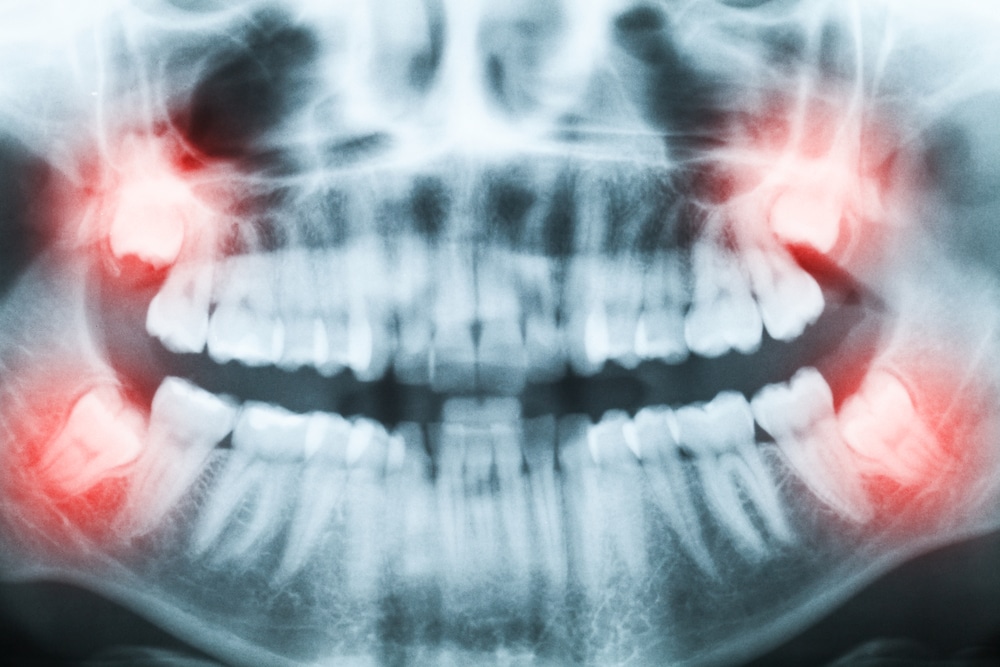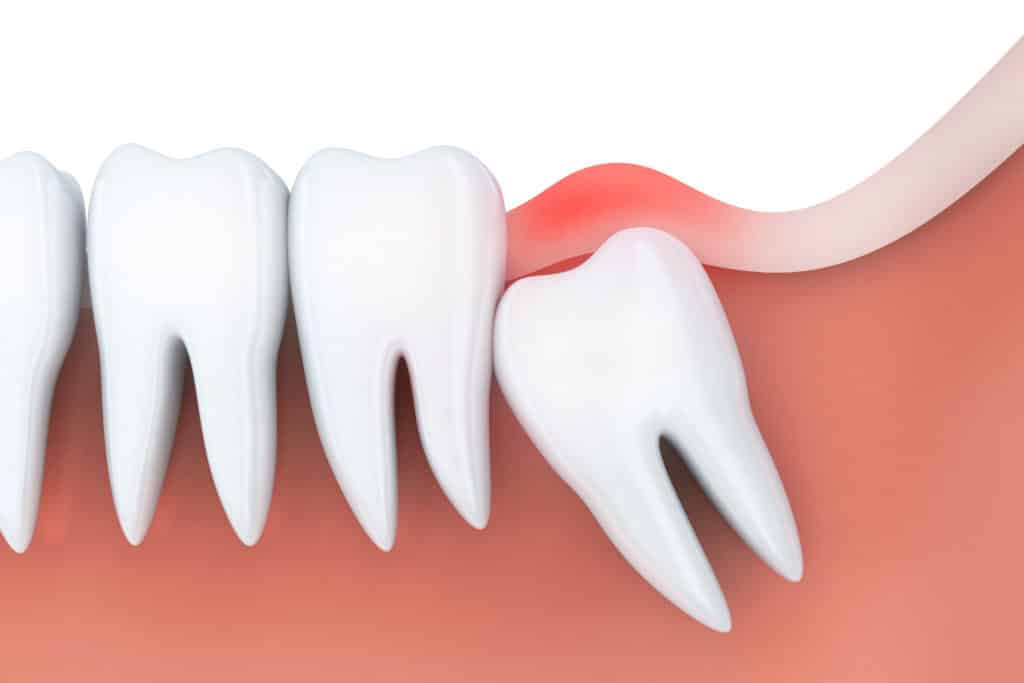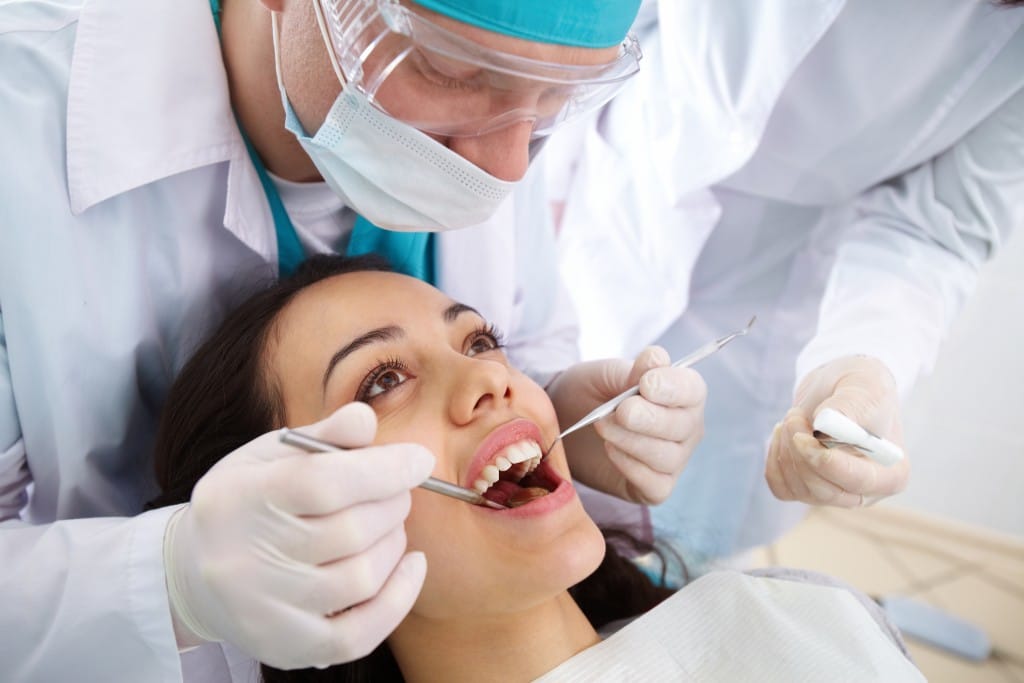For many years, removing a teenager’s or young adult’s wisdom teeth was considered to be a routine part of transitioning into adulthood. Many find themselves parting with their pearly whites before they’ve even had an opportunity to emerge. Now, some oral health experts are becoming opposed to the automatic removal of wisdom teeth, instead opting to keep a watchful eye on their development. Let’s take a closer look at both sides of this decision. This might help you decide whether to pull or not to pull your or your child’s wisdom teeth. We’ve updated this post in 2024 to give you additional information and help make your decision easier.

What’s the Problem with Wisdom Teeth?
Between the ages of 17 and 25, the four teeth in the very back of the mouth, referred to as the “wisdom teeth” or “third molars”, begin to shift. When the teeth start to push through the gums, there is a chance that they will grow in at an odd angle or they will only partially emerge. If this happens, the teeth need to be removed in order to avoid infection.
However, tooth infections and other complications don’t always occur. In some young adults, the teeth grow properly and the surrounding gum tissue remains normal. With this in mind, let’s take a closer look at whether to pull or not to pull wisdom teeth, and the pros and cons of removal.
The Pros of Wisdom Teeth Removal
The third molars have a reputation for behaving in an unpredictable manner. As time goes on, wisdom teeth can change position, which leads to complications. In some cases, the third molars put pressure on, and crowd surrounding teeth. When this happens, there is risk that an individual will have adjacent molars damaged, develop gum disease, or even grow cysts that can develop into non-cancerous tumors. In other cases, individuals need to have emergency dental surgery to relieve intense oral pain.
Ultimately, having the third molars pulled can prevent:
- Infection: Also known as pericoronitis, infections can occur when the wisdom teeth only partially emerge, and allow bacteria to accumulate.
- Crowding: When the wisdom teeth start to come in, but they don’t have enough space, they can crowd other teeth and cause misalignment.
- Pain: As the wisdom teeth press against other teeth and the gums, it can cause moderate or severe pain.
The Cons of Wisdom Teeth Removal
Some oral health experts recommend close monitoring of the wisdom teeth instead of extraction. They liken the removal of healthy wisdom teeth to the removal of a healthy appendix. Yes, a burst appendix causes severe complications. However, unless there is evidence it will rupture, going under the knife prophylactically is ultimately unwarranted.
The same goes for your teeth! Even a simple surgery carries risks, so if you don’t have to put yourself through it, you shouldn’t. When wisdom teeth grow in without incident, it may be a better option to opt to keep them.
If you don’t need wisdom teeth removal, you can avoid:
- Unnecessary surgery and healing: Healing from any surgery takes time, and it’s a good idea to avoid it if you can.
- Expense: Wisdom teeth removal requires great care and expertise, which means it can also be expensive. If you can avoid this, it makes sense to do so.
- Complications: Though they aren’t common, complications from wisdom teeth removal can happen.
To Pull or Not to Pull Your Wisdom Teeth?
At the end of the day, choosing whether or not to remove wisdom teeth is a simple decision—if the teeth are troublesome, get rid of them; if they aren’t, leave them in. If you aren’t sure, your dentist can help. X-rays can show the position of your wisdom teeth and how they’re likely to come in. This can also show where your wisdom teeth are in relation to your other teeth.
Here are a few signs that you should have your wisdom teeth removed:
When to get your wisdom teeth removed:
- Impaction: If your wisdom teeth aren’t emerging and your dentist suspects they’re unlikely to, it can be a sign they need to be removed. This condition, called impaction, can lead to infection and cysts.
- Discomfort: If your wisdom teeth are causing feelings of pain or pressure, it’s often a sign that they need to be removed.
- Problematic X-rays: X-rays can show the condition and placement of your wisdom teeth, and if they’re likely to cause problems in the future.
If your wisdom teeth aren’t causing pain or discomfort, and the x-rays show that they’re likely to come in without trouble, there’s no need to get your wisdom teeth removed. The best way to determine how your wisdom teeth are likely to come in is to make an appointment with your dentist. For more information on dental services, or to find a Las Vegas dentist, contact Boston Dental Group at (702) 388-8888 today or make an appointment online.


